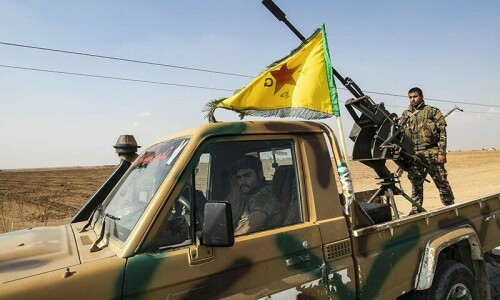Karachi is one of the largest cities in the world. It was once called the ‘city of lights’, due to its bustling and lively night life driven by nightclubs, cinemas, bars, eating places and other recreational outlets until many of these were closed down in 1977.
Nevertheless, Karachi still remains to be a nocturnal abode. Many of its famous symbols of nightlife may have been forced to close down thirty years ago, the pleasures that they once offered are still very much available under-the-table and largely tolerated.
Karachi is also the most diverse city in the country. Its large population is dotted by a number of different ethnicities, religions, Muslim sects and sub-sects.
The largest ethnic group here is made up of Urdu-speakers (Mohajirs), who constitute about 43per cent of the city’s population. The mohajirs also include Gujrati-speakers (Memons).
The second largest ethnic group in Karachi is made up of the Pashtuns (now 18 to 20per cent). The Punjabis and Siraiki speakers together constitute about 19 per cent of the city’s population, followed by the Baloch and Sindhis.
More than 90per cent of Karachiites are Muslim. Most of them belong to the Barelvi Sunni Muslim sub-sect but there is now also a significant number (especially among the Pashtun) who identify with the conservative Deobandi Sunni Muslim sub-sect.
Karachi also has a large Shia Muslim population. Then there is a concentration of both Catholic and Protestant Christians; Bohri and Agha Khani Muslim sects, some Hindus as well as an influential concentration of Zoroastrians.
Karachi also hosts the largest number of immigrant population in Pakistan. These include Bengalis, Burmese, Afghans and a sprinkling of Philippinos, Sri-Lankans and Iranians.
The electoral constituency which best reflects this stunning ethnic, Muslim and religious diversity in Karachi is NA-250. It is not only the largest in Karachi, but one of the largest in Sindh as well.
It is due to this reason that this constituency has been throwing up some of the most interesting results.
Of course, it was not always so massive, but the diverse make-up of its voting population has remained more or less the same.
NA-250 constitutes the city’s leading posh localities, as well as some thickly populated middle and working-class areas.
All of these localities are dotted by hefty pockets of Mohajir, Pashtun, Baloch, Punjabi and Sindhi populations.
Ever since 1988, Karachi’s voters have overwhelmingly voted for ‘secular’ parties, mainly the MQM, followed by the PPP and (after the 2008 election), the ANP.
NA-250 however, has remained to be the trickiest and most uncertain electoral battlegrounds for the competing parties.
During the 1970 election many of the areas that are now within NA-250 came under NW-134 (Karachi VII).
As the majority of voters in the former West Pakistan voted for left-leaning parties such as the PPP and the National Awami Party, voters in the Karachi-7 constituency returned Shah Noorani, chief of the Barelvi Islamic party, the JUP to the National Assembly. Noorani garnered 28,304 votes followed by the PPP’s Noorul Arfin who bagged 22,609 votes.
In the 1977 election, the constituency was further expanded and became NA-191. It was won by Munawar Hassan of Jamat-i-Islami (JI) who got 73,997 votes beating the PPP’s Jamiluddin Aali who managed 33,086 votes.
Karachi’s demography and consequently its politics began to change rapidly during the Ziaul Haq dictatorship between 1977 and 1988.
With the arrival of a large number of Afghans from the war-torn Afghanistan the number of Pashtuns in Karachi grew.
The rising population of the city triggered ethnic and sectarian tensions and this resulted in the rise of the mohajir-centric MQM as a powerful secular-ethnic political force.
In the 1988 election, NA-191 was won by MQM’s Tariq Mehmood who received 36,746 votes. He had to fight hard against Sarwar Malik who was representing the constituency’s Punjabi and Pashtun populations under the Punjabi Pashtun Ittihad (PPI) umbrella. He received 28,145 votes.
The NA elections in 1993 were boycotted by the MQM. In these elections, NA-191 went to the non-religious conservative PML-N’s Abu Bakar who received 27,845 votes followed by the Islamic JI’s Munawar Hassan who could only garner 8,550 votes.
In the 1997 election, whereas most of the NA seats in Karachi were being won by the MQM, NA-191 however produced an upset win for PML-N’s Capt. Haleem who won the seat with 31,414 votes. His closest rival was MQM’s Abdul Jalil who received 25,008 votes.
During the 2002 election, with the increase in the number of seats in the National Assembly , NA-191 became NA-250. Once again this constituency voted against the tide by returning veteran JI member, Sattar Afghani, to the NA with 21,462 votes. His closest rival was MQM’s Nasreen Jalil who received 19,414 votes.
The constituency witnessed perhaps its toughest electoral battle during the 2008 election.
MQM’s Khushbakht Shujaat defeated PPP’s Dr. Ikhtiar Baig in a close and tense fight. Shujaat received 52,045 votes and Baig stood second with 44,412 votes.
NA-250 remains to be a wide-open and uncertain constituency. Recently Karachi’s largest party the MQM has been canvassing aggressively here, setting up various campaigns and offices.
But this time its main battle here is not expected to come from a PPP candidate. Because the other party that is seen trying to make use of this constituency’s eccentric electoral nature is Imran Khan’s PTI. It understands that NA-250 is the only constituency in Karachi that can produce a winner not associated with either the MQM or the PPP.
There is every likelihood that the main contest in NA-250 in the 2013 election will between the MQM and PTI. But PML-N also has a vote bank here and might spoil PTI’s ambitions. My prediction is that MQM, with the help of votes from disillusioned PPP voters in the constituency’s well-to-do and middle-class areas is poised to retain this seat.











































